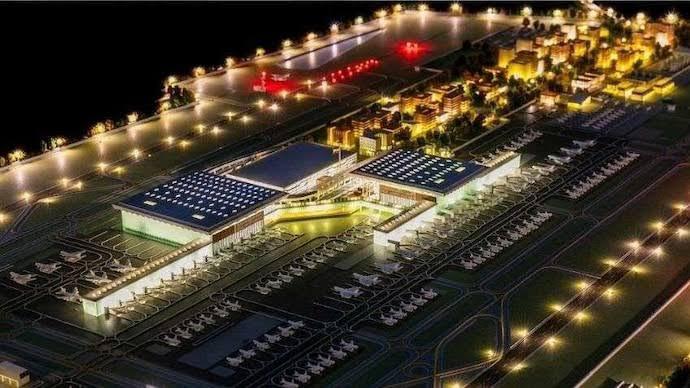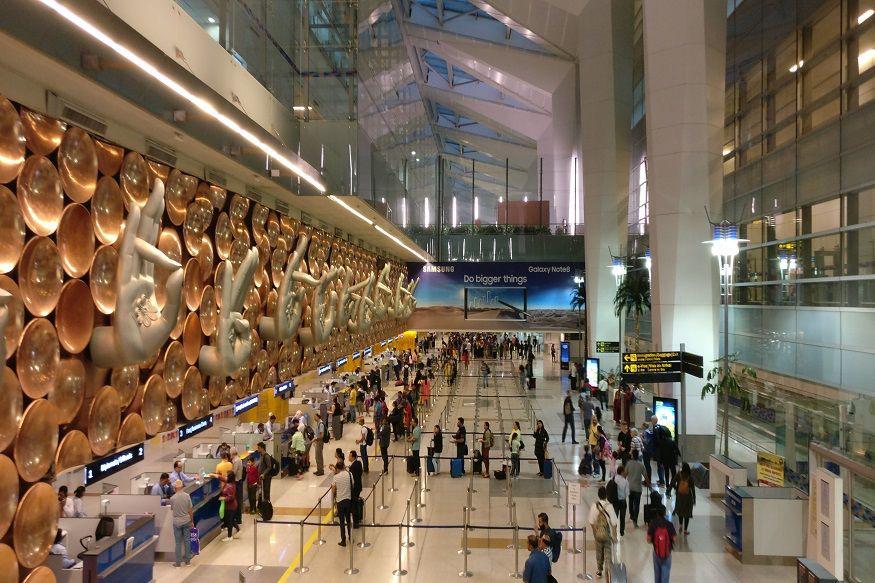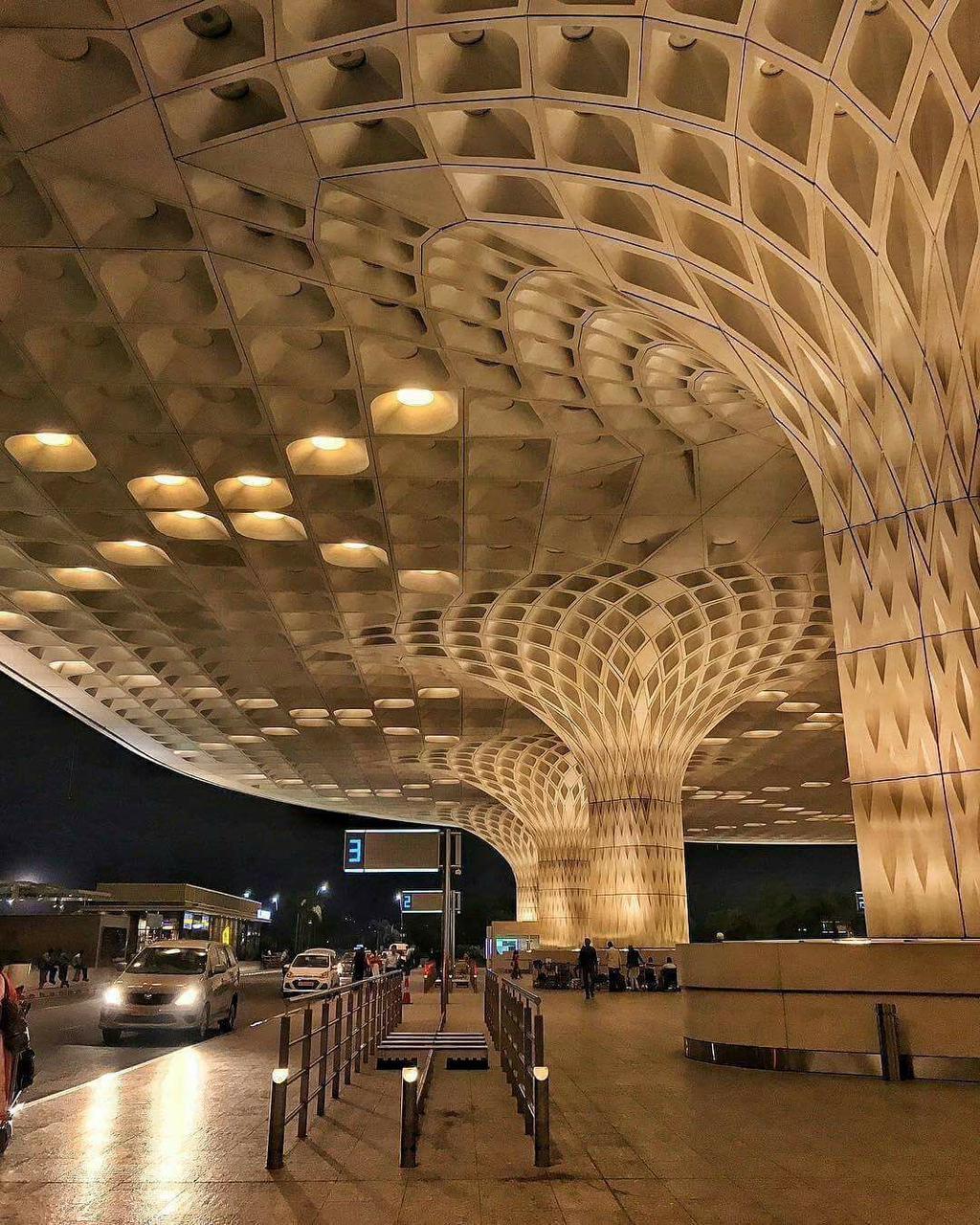The Noida ‘Jewar’ International Airport is currently under construction in the Jewar area of Gautam Buddh Nagar district, being developed in phased manner, with a total of four phases over a 5,000 hectares of land. The airport will become India’s largest and the second international airport in the National Capital Region, located approximately 75 km from Delhi.
However, it has garnered attention as it is set to revolutionise aviation in India with its strong commitment to sustainability and environment. How?
Christoph Schnellmann, the CEO of Noida International Airport, said, "Sustainability and environmental impact were some of the key criteria based on which we selected the airport’s planning and design teams, construction partners, and concessionaires, in every aspect of the airport’s development, from planning to construction.”
What are the notable green initiatives the airport aims to take?
-
Vision of becoming the country’s leading greenfield airport
-
Aims to operate as a net zero emission facility.
-
Set to feature an eight-acre forest and 133 hectares of dedicated green space.
-
Transplantation of over 580 trees, including significant species like neem, mango, shisham, jand, lasora, peepal, and banyan, using scientific methods to ensure no net loss of biodiversity.
-
Specific areas within the airport land have been designated to preserve local species, creating an eight-acre forest reserve.
-
The transplantation process is carried out on the scientific principles of pruning, root ball preparation, tree shifting, and planting
-
Organic manure is used in this process, further aligning with the airport's eco-friendly practices.
-
Use of renewable energy sources, rainwater harvesting systems, onsite waste management facilities, a sewage treatment plant, and electric ground support equipment.
-
Use of Nanogence Catalyst by the EPC contractor, a patented smart activator enhances the binding efficiency of cementitious materials, providing high material performance while significantly reducing carbon emissions.

In 2023, the Airports Authority of India (AAI) launched its groundbreaking publication, the "Sustainable Green Airports Mission”, aimed to transform airports across India into environmentally friendly and energy-efficient hubs, setting new standards for the aviation industry globally.
Indira Gandhi International Airport (Delhi)
Delhi’s Indira Gandhi International Airport (DEL), operated by the GMR Group subsidiary Delhi International Airport Limited (DIAL), is recognized as the world's fourth-best airport and Asia-Pacific's best-improved airport in the 15 to 25 million passengers category by the Airports Council International's Air Service Quality (ASQ) awards.
Its eco-friendly initiatives are:
-
Goal to achieve Net Zero Carbon Emissions by 2030, ahead of the Intergovernmental Panel on Climate Change’s (IPCC) 2050 target.
-
At Terminal 3, numerous energy-efficient technologies have been implemented: energy-efficient chillers, improved insulation in air ducts, a solar water heating system, solar boundary light system and a tempered cooling system.
-
Electrically operated baggage tugs and buggies, along with a Compressed Natural Gas (CNG) fuel station to further reduce emissions.
-
DIAL's Carbon Accounting and Management System meticulously tracks greenhouse gas emissions, enabling targeted reductions.
-
The introduction of the ‘TaxiBot’, a semi-robotic aircraft towing system, has alone reduced CO2 emissions by over 1,154 tonnes since its implementation in May 2019, saving more than 365 tonnes of aviation turbine fuel.
-
The airport has approximately 350 rainwater harvesting structures, with plans to significantly increase this number. Current facilities can store up to 6.9 million liters of rainwater.
-
A 6.6 million litres per day zero liquid discharge sewage treatment plant ensures that all wastewater is treated and reused for horticulture, toilet flushing, and HVAC systems.
-
DIAL is pioneering a 'waste to wealth' initiative, aimed at transforming waste management practices. An Integrated Solid Waste Management Centre (ISWMC) is being developed on-site, featuring a material recovery facility and a biogas plant. These facilities will further enhance the airport's sustainability credentials.

Kempegowda International Airport (Bengaluru)
Bengaluru’s Kempegowda International Airport (BLR Airport) is committed towards sustainability and cutting-edge technology. It has been recognized by the Indian Green Building Council with a Gold rating in LEED India.
Its eco-friendly initiatives are:
-
Installation of a 2 MW solar power plant: it enhances its energy efficiency and reduces its carbon footprint, marking a crucial step towards a self-sustaining business model.
-
Terminal 2 has eco-friendly design and innovation, its sophisticated sustainable features include extensive solar shading, intelligent building systems, and the pioneering use of engineered fire-retardant bamboo in India.
-
The terminal 2 design integrates nature with technology, featuring rainwater harvesting systems that capture, treat, and reuse water. The lush indoor plantings and outdoor gardens utilize harvested water, fostering a serene environment for passengers while promoting biodiversity.
-
With over 10,235 square metres of green walls, hanging gardens, and diverse plant species, Terminal 2 exemplifies BLR Airport's vision of a "Terminal in a Garden," embodying the green aesthetics of Bengaluru.

Chhatrapati Shivaji International Airport (Mumbai)
Mumbai International Airport, also known as Chhatrapati Shivaji Maharaj International Airport (CSMIA), is the second busiest airport in India and has earned a reputation not just for its passenger traffic but also for its commitment to environmental stewardship.
Its eco-friendly initiatives are:
-
Mumbai International Airport has achieved ISO 14064-1:2006 certification for its Carbon Emissions Accounting, underscoring its comprehensive approach to managing its environmental footprint.
-
The airport's Carbon Accounting and Management System (CAMS) meticulously measures, manages, and communicates its greenhouse gas emissions, energy consumption, water usage, waste generation, ambient air quality, and noise levels.
-
Its solar power plant, which has a capacity of approximately 600 KW. This installation, along with other energy efficiency measures such as reducing line loss in electrical systems, replacing conventional bulbs with LEDs, and deploying higher efficiency pumps, positions the airport as a leader in energy efficiency and sustainability.
-
Mumbai International Airport has switched entirely to green energy sources, making it one of India's 100% sustainable airports. Since April 2022, the airport has been operating solely on green energy, including onsite solar generation and other renewable sources such as hydro and wind energy. By August 2022, the airport had achieved 100% utilization of renewable energy, a significant increase from 57% green energy consumption in April 2022.
-
The airport is the first in India to deploy hybrid technology that combines solar and wind energy. The installation of a 10Kwp Hybrid SolarMill, which includes 2Kwp TurboMill (three Savonius type vertical axis wind turbines) and 8Kwp Solar PV modules, represents a pioneering step towards a low-carbon future. This integrated system generates an estimated 36 Kwh/day, further reducing the airport's carbon footprint.
-
Goal is to achieve 'Net Zero Carbon Emission' by 2029.
-
The airport's transition to renewable energy sources is expected to cut down CO2 emissions by approximately 120,000 tonnes annually.
-
The airport's efforts in energy management and sustainability have been recognized by the Confederation of Indian Industry (CII), which awarded it the National Award for Excellence in Energy Management.

The Ministry of Civil Aviation (MoCA) has standardised the Carbon Accounting and Reporting framework for Indian airports in an attempt to reach carbon neutrality and net zero carbon emissions at airports throughout the country. Airports in Delhi, Mumbai, and Bengaluru have achieved carbon neutrality through their efforts to achieve Airports Council International (ACI) Accreditation at Level 4+ and higher. Furthermore, 66 airports in India are currently running entirely on renewable energy.
(Inputs from agencies)
Image Source: Multiple agencies
© Copyright 2024. All Rights Reserved Powered by Vygr Media.






















